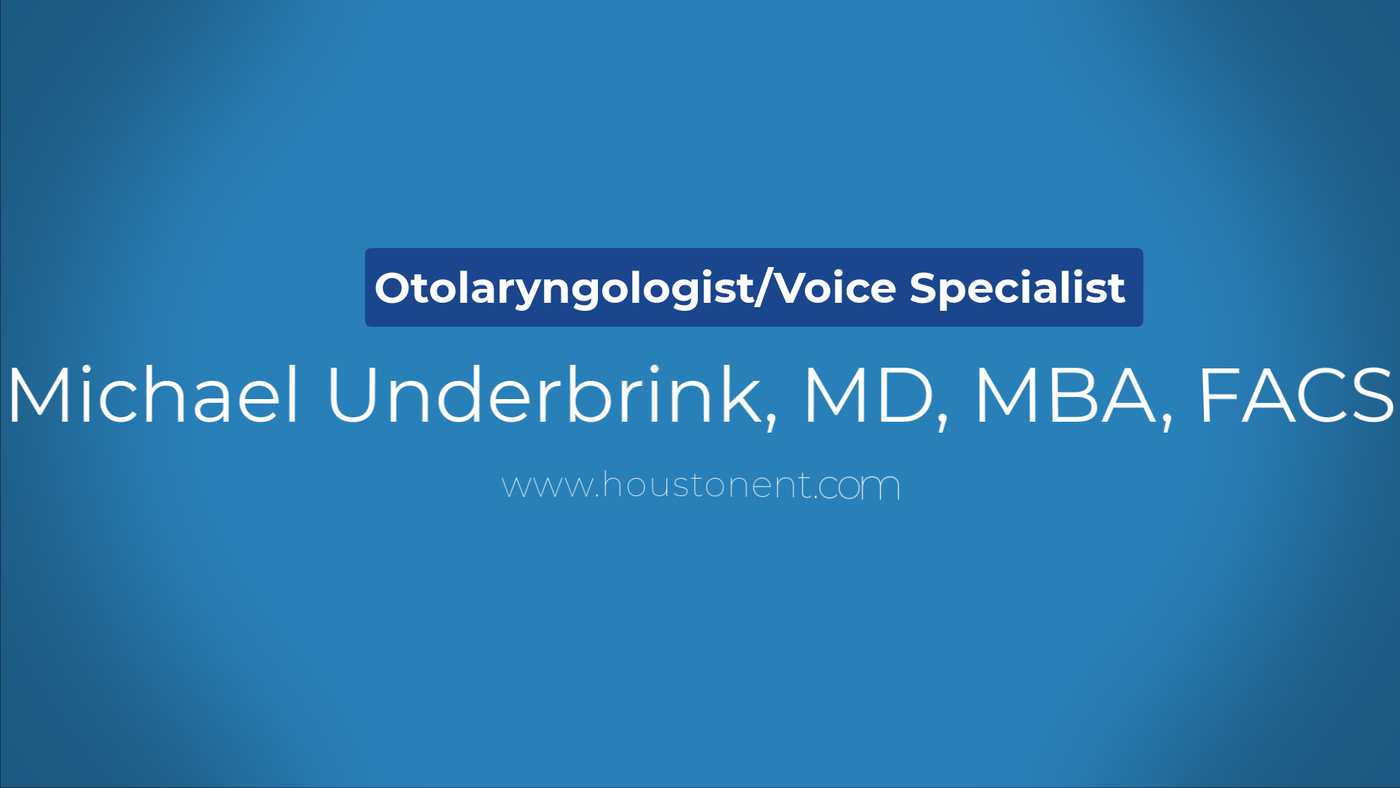Expert Voice & Swallowing Care
Personalized relief for your voice and swallowing problems.

Expert Care: Voice & Swallowing Issues
Find relief from your voice & swallowing conditions and improve your quality of life with expert care from the Houston Voice Center.

Address Your Unique Needs
From laryngitis to vocal cord nodules, we offer a range of advanced treatments and surgical procedures to address your unique needs and goals.

Compassionate care and ongoing support
We understand that voice conditions can impact your daily life, which is why we strive to ensure your complete satisfaction and well-being.
Don't Let Untreated Voice & Swallowing Problems Lead to Serious Health Problems
Don't let untreated voice & swallowing issues impact your health. Conditions like laryngitis, swallowing disorders, GERD, vocal cord paralysis, LPRD, and vocal cord nodules can affect your well-being. Seek timely diagnosis and care from our ENT specialists to alleviate symptoms, prevent complications, and restore vocal health, improving your quality of life.
Don't let voice issues hold you back
Untreated swallowing problems worsen
Neglected symptoms lead to complications

Relief of swallowing conditions, improved voice, & personalized treatment plans
We understand your struggle with voice and swallowing issues. Our compassionate team has helped many like you regain their quality of life. With relief from conditions, improved voice, and personalized treatments, trust our expertise to guide you to recovery and enjoy effortless communication again.

Expertise & Personalized Care
Tailored treatment plans designed for you by specialists, ensure the best possible outcomes for your condition.

Enhanced Comfort & Well-being
Addressing voice and swallowing issues brings relief from discomfort, boosting daily life enjoyment.

Long-term Health Improvement
Timely treatment prevents complications, ensuring lasting vocal health and better overall well-being.
Conditions & Problems Our Voice & Swallowing Experts Treat
Don't let voice and swallowing problems hold you back; our expert team is here to provide tailored solutions for your unique needs. Whether struggling with laryngitis, GERD, vocal cord paralysis, LPRD, or vocal cord nodules, you'll receive personalized care focused on your comfort and well-being. Through our guidance, you can experience improved vocal health, relief from discomfort, and enhanced overall well-being. Trust our compassionate team to support your journey towards effortless communication and swallowing.
3 Steps to Better ENT, Allergy, and Hearing Health
Are you searching for an ENT voice doctor near me? You and your family can enjoy top-quality healthcare at any of our nine Houston facilities. To arrange an appointment, call or use our online booking system (24/7). Our medical professionals will evaluate your symptoms, provide a diagnosis, and create a tailored treatment plan, including on-site tests or procedures/surgery if needed. We prioritize your satisfaction, ensuring a clear understanding of your condition and an effective plan for your ENT, Allergy, & Hearing needs.
Schedule Your Appointment
Schedule a visit with our Voice and Swallowing experts to take the first step toward relief.
Evaluate and Treat Your Symptoms
Your ENT, Voice, and Swallowing experts will collaboratively evaluate your symptoms, provide a diagnosis, and recommend a treatment plan.
Experience Relief
Your Voice and Swallowing specialists will tailor treatment to your needs so you can experience the relief you deserve.
What our patients are saying
"Knowledge and experience comes with time but you can tell when someone is in their element. I felt like I was in the hands of a Doctor that cares about his patients. He listened and quickly applied the tools necessary to diagnose my issues and explained them in an easy to understand way. Instead of jumping to surgical solutions, he yielded on the side of caution and prescribed vocal therapy first. At 61, my early years of a high Tenor may be over but this issue has created a rough speaking voice that takes effort. I agree with the audio, video and explanation I was given. My hearing is a problem as well which is making me talk louder than normal and will be addressed in my next visit. I don't need surgery yet but if I ever do, I feel confident Dr. Underbrink knows what he is doing."
August B
"I was diagnosed with cancer in my vocal cords about a year ago by Dr. Underbrink. Dr U recommended radiation treatment and supported me every step of the way. It's been now over 8 months since I completed the radiation treatment and happy to report that as of my last visit yesterday, I am cancer free!! What a great Xmas present!!
Thanks, Dr, U for all your advice and support during this very difficult time in my life!"
Medardo M.
"I highly recommend Dr Underbrink, I had been looking for an ENT that specializes in vocal cord paralysis and disorders in Houston tx and he seems to be the only one qualified with plenty of experience. In the past I had seen at least 8 different "specialists" and one of them totally botched a thyroplasty surgery I had in 2019 but Dr underbrink was able to correct that."
Dante Z
Commonly Asked Voice & Swallowing Questions
Can GERD cause vocal cord damage?
Yes, GERD can cause vocal cord damage due to the acid reflux irritating the vocal cords.
How is laryngitis diagnosed and treated?
Laryngitis is diagnosed through a physical exam and may be treated with rest, hydration, and medication to reduce inflammation and pain.
What is the difference between dysphagia and odynophagia?
Dysphagia is difficulty swallowing, while odynophagia is pain while swallowing.
Can vocal cord nodules go away on their own?
In some cases, vocal cord nodules can go away on their own with proper voice rest and therapy. More severe cases may require surgery.
What are some lifestyle changes that can help with voice and swallowing issues?
Lifestyle changes that can help with voice and swallowing issues include avoiding alcohol and smoking, staying hydrated, and practicing proper vocal hygiene like warming up before speaking and avoiding shouting or whispering.
Free Resources to Voice and Swallowing Problems and Issues
Voice and Swallowing Relief When You Need It
If you're struggling with voice and swallowing problems, our expert team is here to provide you with personalized care. We understand the impact these conditions can have on your daily life, and we're dedicated to helping you find relief. We'll work with you to create a tailored treatment plan that addresses your unique needs.
